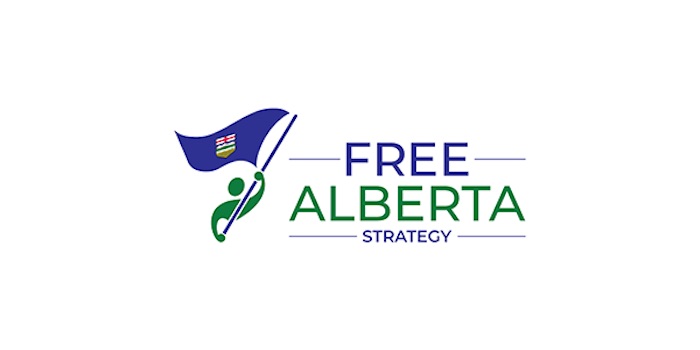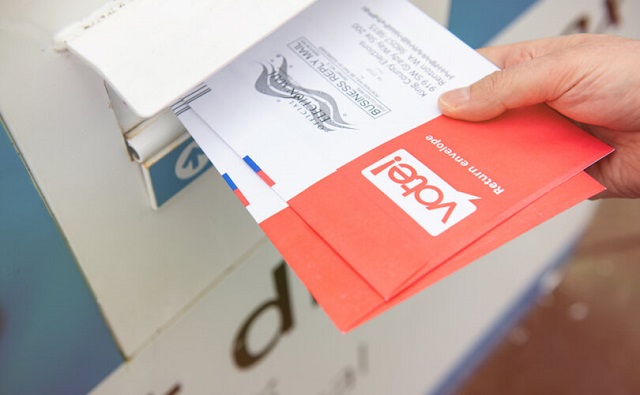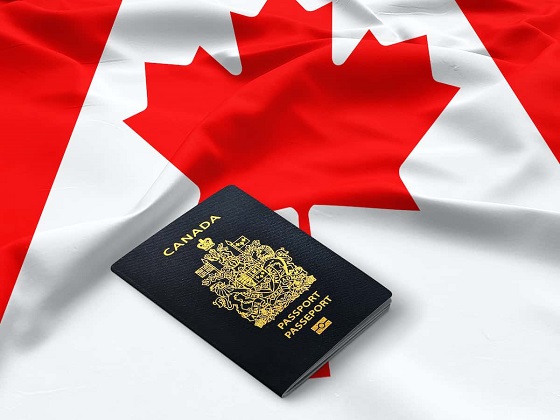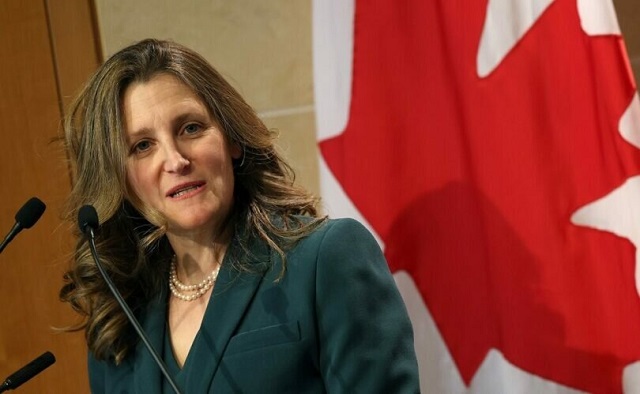Alberta
Group behind the Alberta Sovereignty Act pleased with Province’s strategy

Submitted by Free Alberta Strategy
The Alberta Sovereignty Within A United Canada Act – the new full name for the Sovereignty Act – was introduced to the Alberta Legislature on Tuesday.
Now that we’ve had a short while to digest it, we’re confident in saying that when it comes to protecting the interests of Alberta on the national stage, the Act is right on the money.
The Sovereignty Act, in practicality, is just a procedural bill – more or less just a framework for a free vote in the Legislature. It allows for a Cabinet Minister to introduce a motion about a “federal initiative” that the Minister believes to be unconstitutional on the basis of intruding into an area of provincial constitutional jurisdiction, or is otherwise harmful to Albertans, such as by violating Albertans’ rights and freedoms under the Charter of Rights and Freedoms.
The resolution would identify not only the “federal initiative” that is being addressed, but also specific “measures” that the government may use to push back.
The motion would then be debated on the floor of the Legislature, followed by a free vote of MLAs and – if the majority vote is in favour – the passage of the motion.
At this point, Cabinet is then tasked with implementing the specific “measures” identified in the motion.
The usual suspects have continued to claim that it’s unconstitutional for Alberta to insist that the federal government follow the constitution, and to refuse to help them enforce their laws when they don’t.
This was always a strange argument, but even more so now, given the bill explicitly says, right near the start:
Nothing in this Act is to be construed as (a) authorizing any order that would be contrary to the Constitution of Canada.
Some, however, have now finally come to understand the Strategy.
Take the National Post’s Carson Jerema, for example, who – just a few months ago – was attacking the Sovereignty Act.
Yesterday, he got behind it, in a piece entitled: “Surprise, Danielle Smith’s sovereignty act is very likely constitutional“…
This is hardly the Constitution-breaking plan, which Smith’s critics, myself included, warned about during her campaign for the UCP leadership. The characterization of the sovereignty act as a threat to the rule of law, which some critics are still expounding, is simply wrong. Jesse Hartery, a Toronto lawyer with expertise in federalism, says he has been frustrated by the debate around the sovereignty act because the proposal, as currently written “appears to be constitutional,” based on existing law.
“One government can seek assistance from the other, can co-operate with the other, but they can’t require the other to implement and enforce their laws,” he told me by phone Wednesday morning. “So the (Supreme) Court has never endorsed that, and in fact, there’s decisions where the court says: there’s no positive obligation on a province or the federal government to co-operate with the other.”
Of course, for those of you who’ve been following our work for a while, it’s not at all a surprise that the Sovereignty Act is constitutional!
It’s not a surprise to us, because this has been our argument for over a year – one that we’ve repeatedly explained in these emails, on social media, on traditional media, in virtual town halls, physical events, and more.
Provinces have always had the right to refuse to endorse federal laws, and to do so is not contrary to the Constitution of Canada.
The reality is that the attacks are nothing but political theatre from a group of politicians and critics that have been missing the mark on western alienation for years now.
We’ve seen how far the federal government is willing to go to impose their Laurentian views on the rest of the country. They’ve made a mockery of the political system over the past eight years, launching an all-out war on our energy industry that has landlocked our resources and destroyed our livelihoods. We all remember the dark days when unemployment was the highest in the country, debts were coming due, and suicide rates were high. None of us want to relive that.
The Sovereignty Act is absolutely necessary, and the fact that the Sovereignty Act is Bill 1 demonstrates that this new government has put standing up to federal overreach at the top of the priority list.
Its introduction has already caught the attention of the federal government, with Prime Minister Justin Trudeau saying that he isn’t “looking for a fight,” over the Sovereignty Act.
In his comments, there appears to be some awareness that bringing the hammer down on Alberta over this legislation would create potential issues in Quebec and Saskatchewan, with both provincial governments undoubtedly monitoring the situation in Edmonton closely.
The Alberta Sovereignty Within A United Canada Act has a purpose – to give Alberta a tool to protect against federal intrusions into provincial affairs. In passing this Bill, it appears that Premier Danielle Smith and her team hit all the right notes.
*****
If you want us to keep fighting for a strong and free Alberta, please make a contribution now to fund our efforts:
| CLICK HERE TO HELP |
If you’re not in a position to contribute right now, we understand, but please consider signing up as a volunteer to help spread the word.
Alberta
Former senior financial advisor charged with embezzling millions from Red Deer area residents

News release from Alberta RCMP
Former senior financial advisor charged for misappropriating nearly $5 million from clients
On April 4, 2024, the RCMP’s Provincial Financial Crime Team charged a Calgary resident for fraud-related offences after embezzling millions of dollars from his clients while serving as a senior financial advisor.
Following a thorough investigation, the accused is alleged to have fraudulently withdrawn funds from client accounts and deposited them into bank accounts he personally controlled. A total of sixteen victims were identified in the Red Deer area and suffered a combined loss of nearly $5 million.
Marc St. Pierre, 52, a resident of Calgary, was arrested and charged with:
- Fraud over $5,000 contrary to section 380(1)(a) of the Criminal Code; and,
- Theft over $5,000 contrary to section 344(a) of the Criminal Code.
St. Pierre is scheduled to appear in Red Deer Provincial Court on May 14, 2024.
“The ability for financial advisors to leverage their position to conduct frauds and investment scams represents a significant risk to the integrity of Alberta’s financial institutions. The investigation serves as an important reminder for all banking clients to regularly check their accounts for any suspicious activity and to report it to their bank’s fraud prevention team.”
- Sgt. John Lamming, Provincial Financial Crime Team
The Provincial Financial Crime Team is a specialized unit that conducts investigations relating to multi-jurisdictional serious fraud, investments scams and corruption.
Alberta
Political parties will be part of municipal elections in Edmonton and Calgary pilot projects

Strengthening Alberta’s local elections
Alberta’s government is introducing legislation to ensure Albertans can rely on transparent, free and fair elections, and municipally-elected officials have clearer accountability measures.
In a democratic society, Albertans expect their local elections to be free and fair, and their elected officials to be held to account by clear rules that govern their local councils. The Municipal Affairs Statutes Amendment Act proposes amendments to the Local Authorities Election Act (LAEA) and the Municipal Government Act (MGA) to add greater transparency to local election processes and ensure local councils and elected officials continue to remain accountable to the citizens who elected them.
“Our government is committed to strengthening Albertans’ trust in their local governments and the democratic process that elects local leaders. The changes we are making increase transparency for Alberta voters and provide surety their votes will be counted accurately. We know how important local democracy is to Albertans, and we will work with local authorities to protect and enhance the integrity of local elections.”
Local Authorities Election Act
Albertans expect free and fair elections and that’s why it’s important we strengthen the rules that govern local elections. To strengthen public trust in local elections, Alberta’s government will eliminate the use of electronic tabulators and other automated voting machines. All Albertans should be able to trust the methods and results of local elections; requiring all ballots to be counted by hand, clarifying rules and streamlining processes for scrutineers will provide voters greater assurance in the integrity of the results.
All eligible Albertans should be able to vote in local elections without impediment. Alberta’s government will limit the barriers for eligible voters to cast a ballot by expanding the use of special ballots. Currently, special ballots can only be requested for very specific reasons, including physical disability, absence from the municipality, or for municipal election workers. By expanding the use of special ballots, the government is encouraging more voter participation.
Amendments in the Municipal Affairs Statutes Amendment Act would increase transparency in local elections by enabling political parties at the local level. Political parties would be enabled in a pilot project for Edmonton and Calgary. The act will not require candidates to join a political party in order to run for a local or municipal office, but will create the opportunity to do so.
In addition, proposed changes to the Local Authorities Election Act would allow municipalities the option to require criminal record checks for local candidates, thus increasing transparency and trust in candidates who may go on to become elected officials.
Municipal Government Act
The role of an elected official is one with tremendous responsibility and expectations. Changes proposed to the Municipal Government Act (MGA) will strengthen the accountability of locally elected officials and councils. These include requiring mandatory orientation training for councillors, allowing elected officials to recuse themselves for real or perceived conflicts of interest without third-party review and requiring a councillor’s seat to become vacant upon disqualification.
If passed, the Municipal Affairs Statutes Amendment Act will also unlock new tools to build affordable and attainable housing across Alberta. Proposed amendments under the MGA would also create more options for municipalities to accelerate housing developments in their communities. Options include:
- Exempting non-profit, subsidized affordable housing from both municipal and education property taxes;
- Requiring municipalities to offer digital participation for public hearings about planning and development, and restricting municipalities from holding extra public hearings that are not already required by legislation; and
- Enabling municipalities to offer multi-year residential property tax exemptions.
Municipal Affairs will engage municipalities and other partners over the coming months to hear perspectives and gather feedback to help develop regulations.
Quick facts
- The LAEA establishes the framework for the conduct of elections in Alberta municipalities, school divisions, irrigation districts and Metis Settlements.
- The MGA establishes the rules governing the conduct of local elected officials once on council, as well as the overall administration and operation of municipal authorities in Alberta, including any policy those authorities may wish to implement.
Related information
-

 espionage2 days ago
espionage2 days agoOne in five mail-in voters admitted to committing voter fraud during 2020 election: Rasmussen poll
-

 Business1 day ago
Business1 day agoHonda deal latest episode of corporate welfare in Ontario
-

 Automotive1 day ago
Automotive1 day agoThe EV ‘Bloodbath’ Arrives Early
-

 CBDC Central Bank Digital Currency20 hours ago
CBDC Central Bank Digital Currency20 hours agoA Fed-Controlled Digital Dollar Could Mean The End Of Freedom
-

 Brownstone Institute19 hours ago
Brownstone Institute19 hours agoThe Numbers Favour Our Side
-

 Frontier Centre for Public Policy15 hours ago
Frontier Centre for Public Policy15 hours agoHow much do today’s immigrants help Canada?








